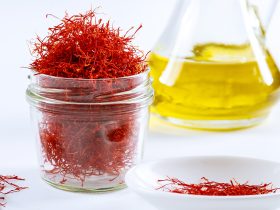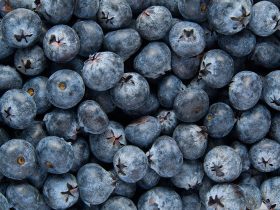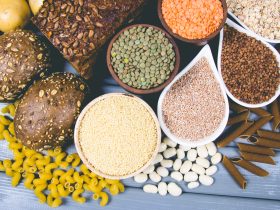Teas are renowned for their immune-boosting and anti-inflammatory properties, making them a popular choice for those seeking to enhance their overall health.
Relying on the many health benefits of antioxidants, teas effectively combat oxidative stress while their antimicrobial, antiviral, and anti-inflammatory properties contribute to bolstering immune function.
Indulging in a soothing cup of tea throughout the day is an excellent way to prioritize your well-being. Discover the following top anti-inflammatory teas, each offering unique benefits to support your overall wellness journey.
- Turmeric Tea
Turmeric tea offers a convenient way to incorporate the anti-inflammatory properties of turmeric into your daily routine. It is prepared by steeping either turmeric root or turmeric powder in hot water.
The active ingredient in turmeric, curcumin, is known for its potent anti-inflammatory properties, as evidenced by research findings that suggest it can reduce markers of inflammation.
Moreover, turmeric tea is believed to support immune function by mitigating inflammation and combating oxidative stress, thanks to its antioxidant content. Last but not least, turmeric may help with weight loss, making it a great choice for a variety of people.
To prepare turmeric tea, you can find ready-to-use tea bags at your local store, or you can make it using dried, ground, or powdered turmeric. Simply add 1–2 tablespoons of turmeric to 4 cups of water, and allow it to simmer for about 10 minutes.
- Chamomile Tea
Chamomile tea is renowned for its anti-inflammatory properties and has been used for nearly 5,000 years to promote tranquility and well-being.
With its pain-lowering abilities, chamomile tea has earned the nickname “herbal aspirin.” Its anti-inflammatory effects help reduce pain, swelling, redness, and underlying inflammation issues.
Research indicates that chamomile can effectively reduce inflammation both when consumed as a tea and when applied topically. It’s commonly used to address skin and mucous membrane inflammation, bacterial skin infections, mouth infections, respiratory tract infections, gastrointestinal discomfort, and even eye inflammation.
However, individuals with ragweed allergies may experience exacerbated symptoms when consuming chamomile tea, making it unsuitable for them.
Preparing chamomile tea is simple, as it’s widely available in ready-to-serve tea bags. Alternatively, you can opt for chamomile powder or extracts for a more potent antioxidant boost. For inflammation reduction, aim to consume 1–4 cups of chamomile tea per day.
Beyond consumption, chamomile can also be used in homemade beauty and body care recipes due to its strong anti-inflammatory properties.
- Green Tea
Green tea is renowned for its numerous health benefits, earning its reputation as the ultimate anti-aging beverage and one of the most popular drinks worldwide.
Numerous studies have highlighted the anti-inflammatory and antioxidant properties of green tea. It has been shown to suppress the gene and protein expression of inflammatory cytokines, thereby improving the quality of life for individuals with inflammatory diseases.
A study published in Food and Nutrition Research demonstrated that supplementing with green tea yields beneficial effects on markers of inflammation, antioxidant status, and blood pressure.
To prepare green tea, there are various types available, with sencha being the most popular and matcha green tea gaining traction due to its high antioxidant content. When brewing green tea, it’s essential to heat the water to temperatures between 160–180 degrees Fahrenheit, below boiling, to preserve its delicate compounds. Steep the leaves for 1–3 minutes or longer for larger leaves. For added flavor, consider incorporating lemon juice or raw honey before consumption.
Preparing matcha tea follows a different method. Begin by adding 1 teaspoon of matcha powder to a bowl or cup, followed by 2 ounces of almost-boiled water. Whisk the powder for one minute until it becomes thick and frothy, then add an additional 4 ounces of water before enjoying.
- Yerba Mate Tea
Yerba mate, derived from the leaves and twigs of the yerba mate plant, is a tea known for its immune-boosting properties. It contains polyphenols and saponins, compounds that contribute to strengthening the immune system and enhancing the body’s defense mechanisms against diseases.
Rich in nutrients, yerba mate is packed with vitamins, minerals, antioxidants, fatty acids, tannins, amino acids, and chlorophyll. Studies have shown that yerba mate exhibits a high antioxidant capacity and helps safeguard DNA from oxidative damage.
Yerba mate can be enjoyed in various forms, including loose-leaf tea and ready-to-brew tea bags, as well as bottled cold beverages. To prepare loose-leaf yerba mate tea, simmer water or milk (avoid boiling), add approximately one teaspoon of yerba mate per cup, and steep for 3–5 minutes. For added flavor, consider incorporating lemon, mint, or your preferred natural sweetener.
- Peppermint Tea
Peppermint tea is renowned for its anti-inflammatory, antiviral, and antimicrobial properties. It is frequently used to alleviate symptoms of irritable bowel syndrome and promote respiratory health by reducing congestion and opening the airways. Peppermint tea is particularly effective in soothing inflammation in the stomach.
To prepare peppermint tea, you can readily find it in tea bags at your local grocery store, or you may opt for loose-leaf tea options available in the market.
Alternatively, if you have peppermint oil at home, you can create an anti-inflammatory tea by adding two drops of peppermint oil to green, white, or black tea. This homemade remedy is excellent for addressing issues such as upset stomach, respiratory ailments, and fatigue.
- Ginger Tea
Ginger tea offers a comforting and flavorful way to combat inflammation, soothe an upset stomach, and regulate cholesterol and blood sugar levels.
The key compound in ginger, gingerol, has been studied for its remarkable anti-inflammatory properties. Research published in the Journal of Medicinal Food suggests that gingerol can modulate biochemical pathways involved in chronic inflammation.
Additionally, a 2017 study in PharmaNutrition highlights that ginger’s anti-inflammatory effects stem not only from its phenolic compounds but also from the combined actions of gingerols and aromatic essential oils found in the root.
To prepare ginger tea, you can either use ready-to-serve tea bags available in most grocery stores or make your own using the following recipe:
- Peel and thinly slice a 2-inch knob of ginger.
- Place the ginger slices in a pot of water and bring it to a boil.
- Allow the ginger to boil for 10–30 minutes, depending on how potent you want the tea to be.
- Strain the ginger from the tea.
- Before drinking, add fresh lemon juice or organic honey for added flavor and sweetness.
Possible Side Effects to Consider
There is a possibility of allergic reactions to some of these anti-inflammatory herbs. If you experience symptoms of food allergies such as itching, swelling, or hives, it is advisable to discontinue drinking the tea.
In some cases, consuming excessive amounts of these top anti-inflammatory teas may lead to heartburn, diarrhea, or upset stomach. If you encounter such symptoms, consider reducing the quantity of tea you consume.
When using anti-inflammatory teas for medicinal or therapeutic purposes, it is recommended to limit intake to 1–2 cups per day, unless otherwise advised by your healthcare professional. This helps minimize the risk of adverse side effects.
Final Takeaways
Anti-inflammatory teas made from herbs and roots are effective in reducing inflammatory markers and oxidative stress associated with disease.
These natural remedies are easily accessible in ready-to-use tea bags, widely available in most grocery stores. Additionally, they can be prepared at home by steeping the herb or root for a few minutes.
Consuming approximately two cups of anti-inflammatory tea daily, or more if well-tolerated, can contribute to enhanced immune function and overall health.
















Find Us on Socials